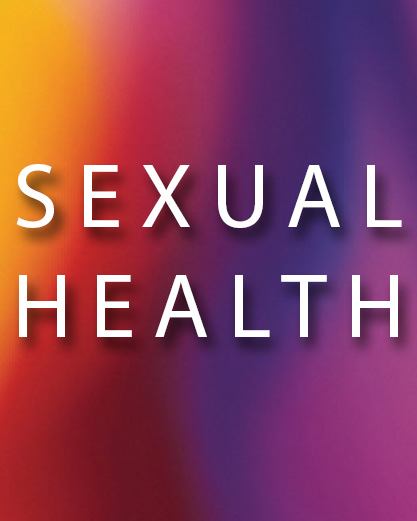Painful intercourse and sexual dysfunction are very common among patients with chronic pelvic pain conditions. Pelvic myofascial pain is strongly associated with painful intercourse that leads to restriction of sexual activity, even after accounting for other factors that are commonly associated with painful intercourse and sexual dysfunction, such as endometriosis and depression. Prompt assessment for pelvic myofascial pain via a comprehensive, standardised pelvic floor muscle exam can facilitate timely and effective treatment for patients who report painful intercourse.

Sexual Health
Volume 21 Number 5 2024
Men who engage in sex work are disproportionately affected by conditions that worsen their sexual health. We sought to investigate how certain conditions influence having many non-steady condomless sex partners, and we found that polydrug use, homophobic abuse and alcohol dependency are important conditions that may worsen the sexual health of male sex workers. There is an interplay between contextual and behavioural factors that impact prevention efforts, and this needs to be considered for the global health of men who sell sex.
Midwives play a crucial part in providing comprehensive care for pregnant women, yet many feel unprepared to address sexual health issues. Our study reveals that the majority of midwives in Guangdong Province are eager for more training in sexual health education, with a strong preference for online courses. Enhancing midwives’ knowledge in this area can significantly improve the quality of care and support for pregnant women, ensuring their overall wellbeing.
Aging women living with HIV are significantly affected by menopause and age-related comorbidities, yet international and Australian clinical guidance is scarce. Our study identified gaps in the clinical care for women living with HIV. Consequently, our service has implemented a clinical reference tool for women living with HIV, with sections dedicated to reproductive health, menopause symptoms, and psychological wellbeing. We argue that Australian clinicial guidelines should include comprehensive management of women living with HIV.
SH24068 Abstract | SH24068 Full Text | SH24068PDF (216 KB) Open Access Article
This Editorial highlights recent publications included in a new Collection for Sexual Health on using technology to optimise sexual health. By leveraging innovations such as rapid diagnostic tools, mobile health (mHealth), self-testing and artificial-intelligence-powered tools, we can empower individuals to take control of their sexual health, reducing risks and enhancing accessibility.
Our analysis, framed through a minority stress model, reveals distal and proximal stressors relating to living with HIV. Participants had experienced or were aware of institutionalised discrimination towards people living with HIV (PLHIV) across various aspects of their lives. Participants highlighted the role of anticipated stigma and the stress of concealment. An anti-discrimination framework, enforceable by law, on the institutional treatment of PLHIV would address unpredictability, address the manifold unknowns surrounding discriminatory experiences and improve their quality of life.
With rising STI rates and increased use of online STI testing services by young people, there is a need to strengthen treatment pathways from online services. This survey explored young Australians’ preferences for where to receive injectable antibiotics after receiving a positive result online for gonorrhoea or syphilis. Young people’s service preferences differed by sociodemographic characteristics, suggesting a need for multiple service offerings with an emphasis on convenience, affordability and creating a safe space.
SH24087 Abstract | SH24087 Full Text | SH24087PDF (206 KB) | SH24087Supplementary Material (755 KB) Open Access Article
This retrospective data analysis included 2056 male–male partnerships attending an urban sexual health clinic in Melbourne. We found that one in 20 male–male partnerships had at least one man who had both same-sex and opposite-sex partners within the preceding year. There is no assortative relationship in sexual mixing by bisexuality, suggesting bisexual men do not specifically choose other bisexual men as their sexual partners.
SH23190 Abstract | SH23190 Full Text | SH23190PDF (213 KB) | SH23190Supplementary Material (623 KB) Open Access Article
Adolescent sexual and reproductive health (SRH) stigma targets youth who are sexually active, parenting and/or seeking SRH services, and presents barriers to accessing SRH services. We examined trajectories of adolescent SRH stigma over 2 years among urban refugee youth in Uganda. We found two trajectories of adolescent SRH stigma – consistently high and sustained low – and unemployment, having children, recent multiple sex partners, higher depression and living in Uganda longer were associated with the consistently high adolescent SRH stigma trajectory.
Syphilis infection and congenital syphilis has increased substantially in Australia. Timely diagnosis and management can reduce transmission and complications. We developed and implemented a digital tool to promote syphilis testing in general practice, finding it was acceptable to clinicians and alerted some to updated guidelines who expanded their sexually transmissible infection testing practices to routinely include syphilis.
SH24097 Abstract | SH24097 Full Text | SH24097PDF (260 KB) | SH24097Supplementary Material (755 KB) Open Access Article
Mouthwash is a commonly used product with the potential to prevent the transmission of STIs. Our results found that frequent mouthwash use was associated with lower chlamydia prevalence, lower condom use and more sexual partners, suggesting potential STIs prevention among men who have sex with men. Further research is needed to confirm these findings and clarify the underlying mechanisms.
HIV/AIDS acquired through sexual transmission remains a major contributor to global burden of health. We used the Global Burden of Disease Study 2019 to estimate the global burden of HIV/AIDS acquired through sexual transmission in 204 countries and territories from 1990 to 2019, and we found it accounted for ~695.8 thousand deaths and 36.4 million disability-adjusted life years in 2019. Efforts should be made to improve access to education and contraceptives in high-risk regions.
People living with HIV experience laws and policies that negatively impact their potential for travel and migration. We report on key themes from a half-day community forum held as part of the 2023 12th International AIDS Society Conference in Brisbane, Australia. Recommendations are made to remove unfair migration policies that contribute to HIV-related stigma, and an update to migration policies to reflect the current context and cost of biomedical approaches to HIV management and prevention.
SH24006 Abstract | SH24006 Full Text | SH24006PDF (230 KB) Open Access Article




